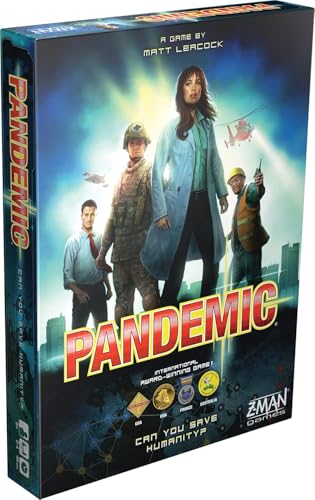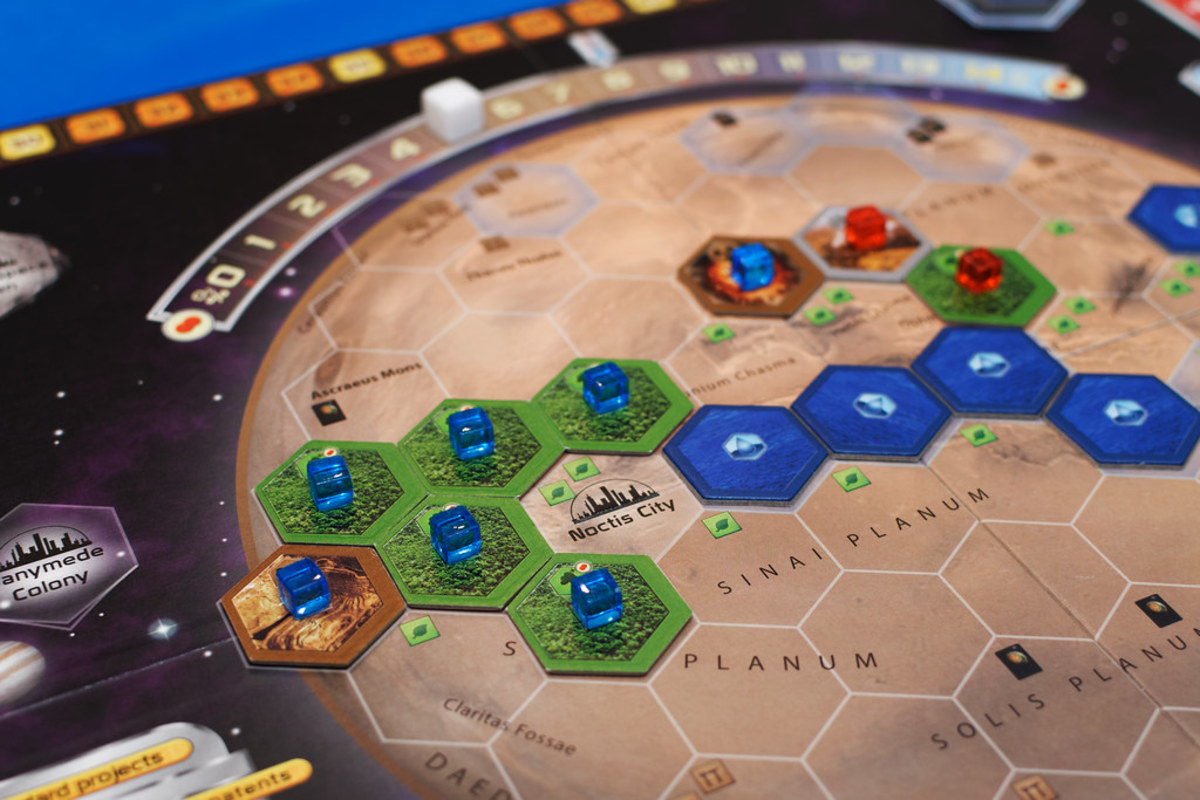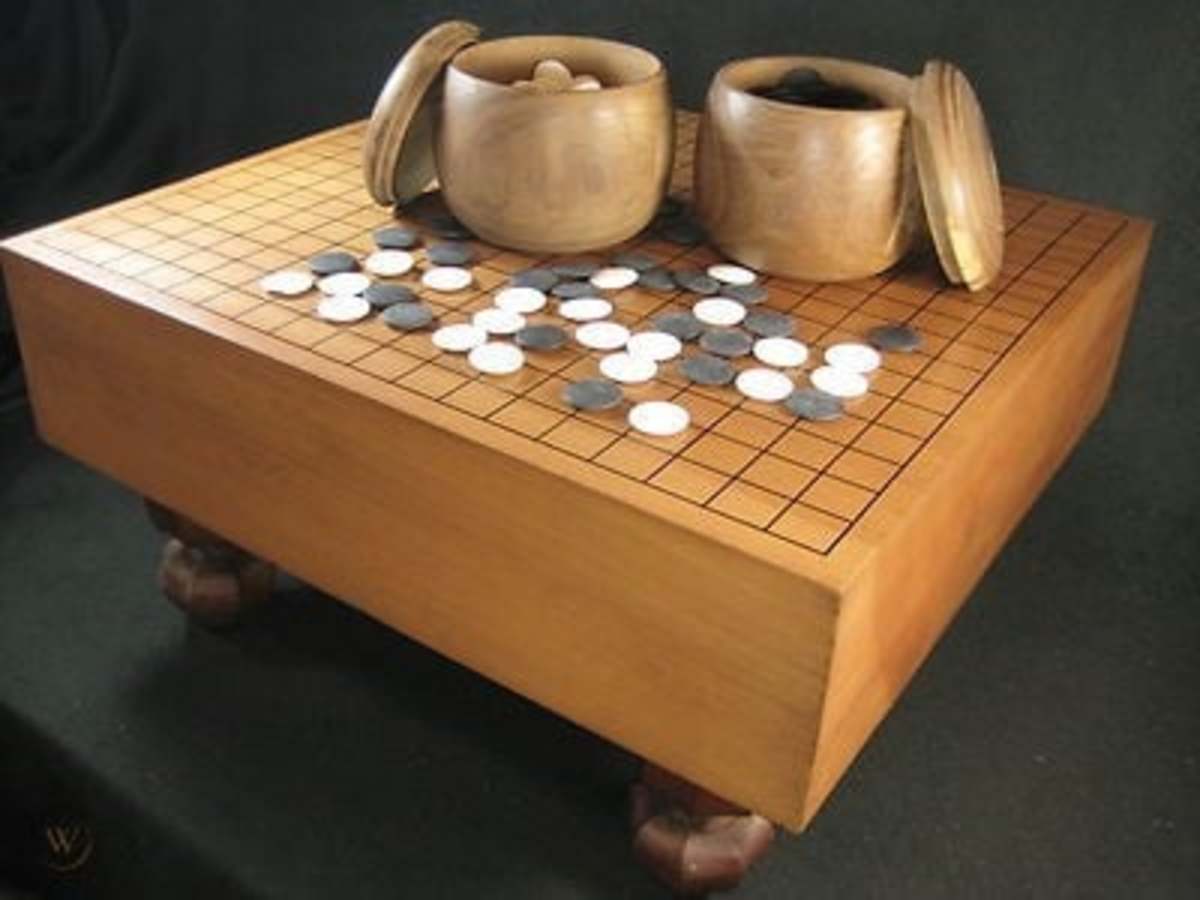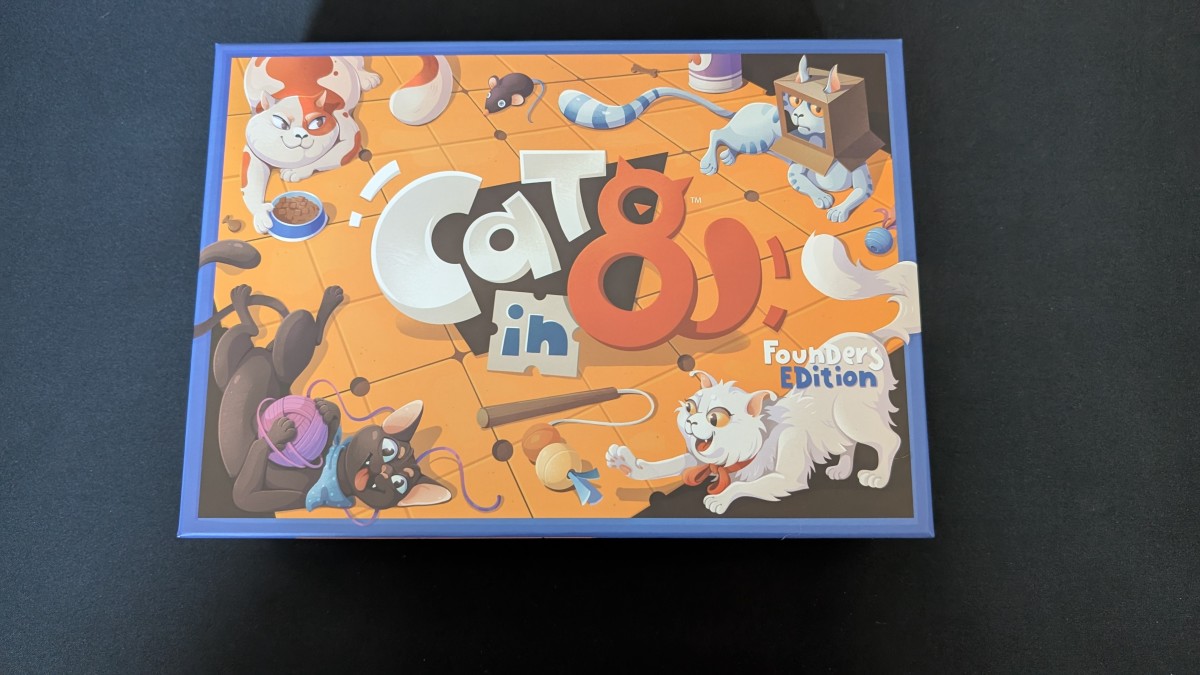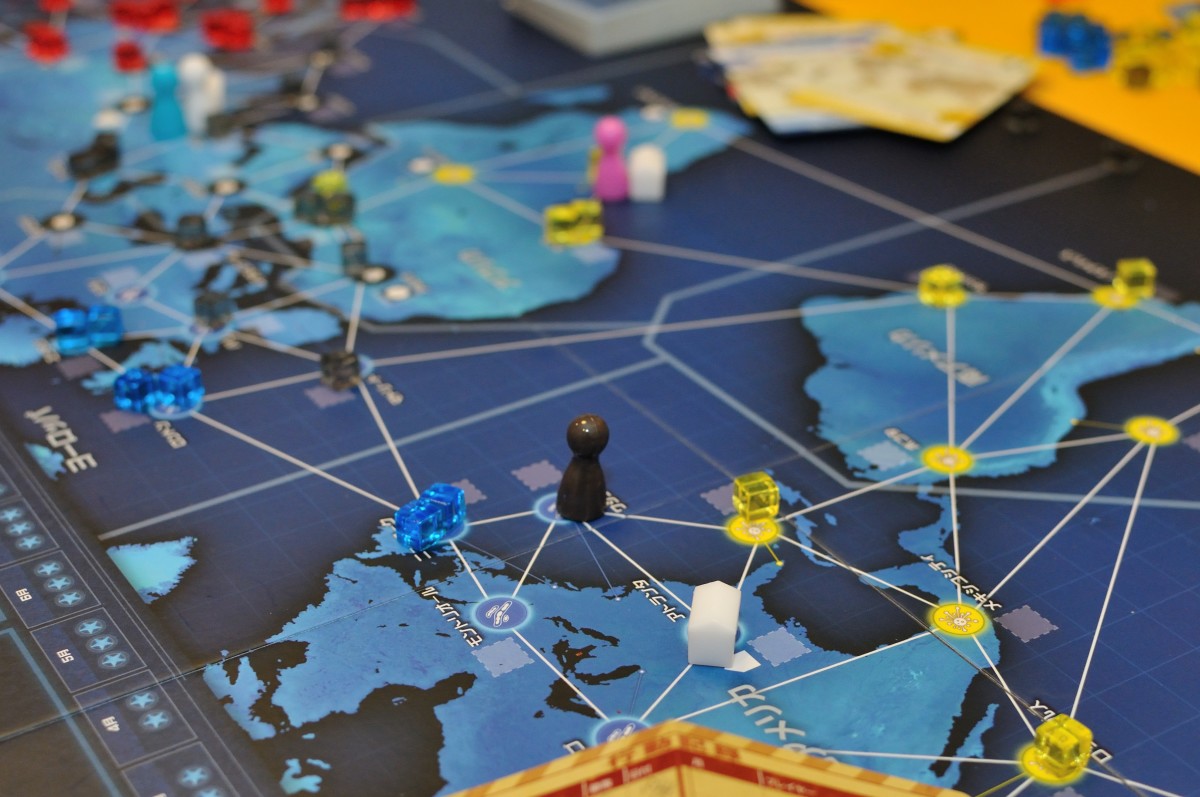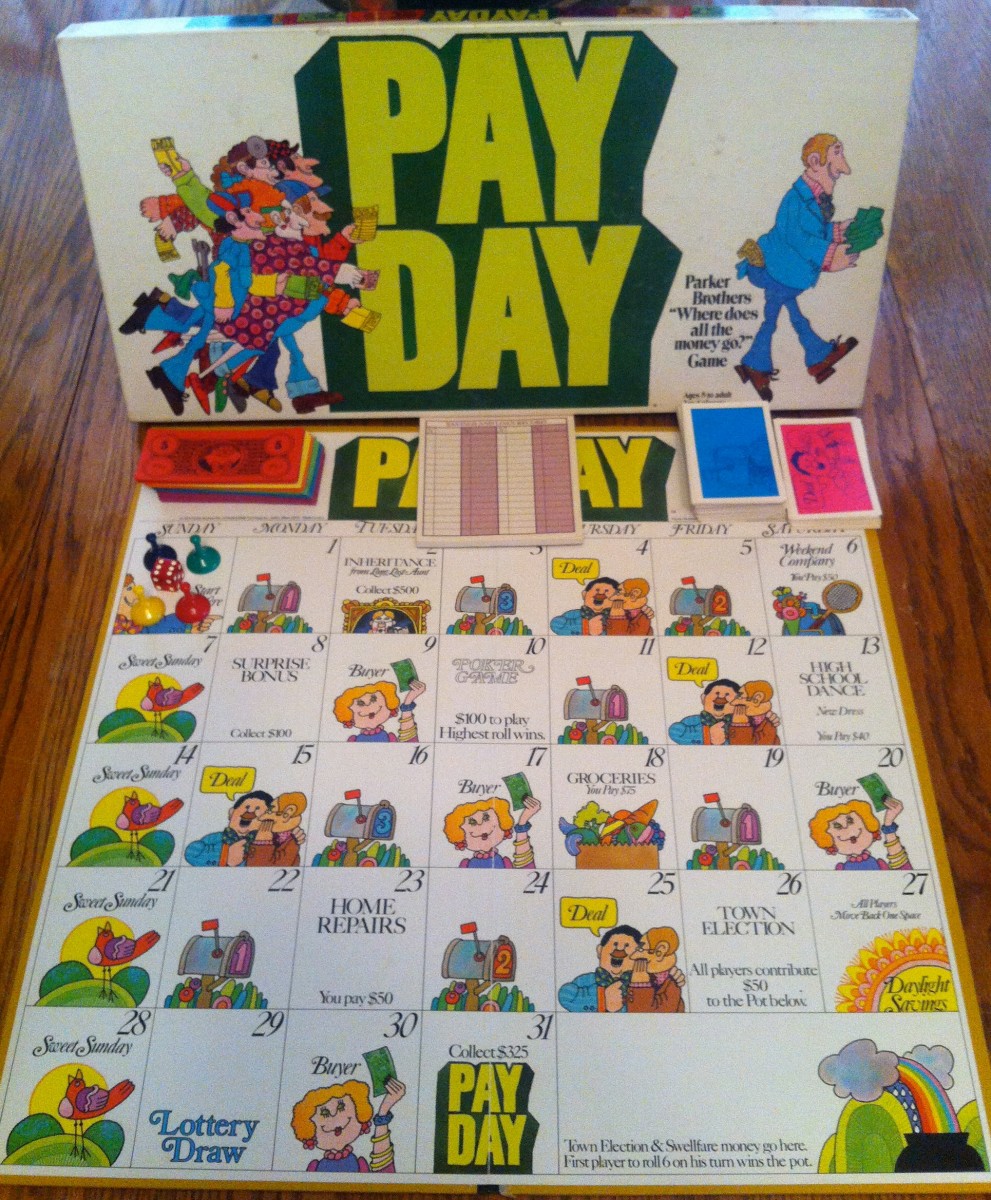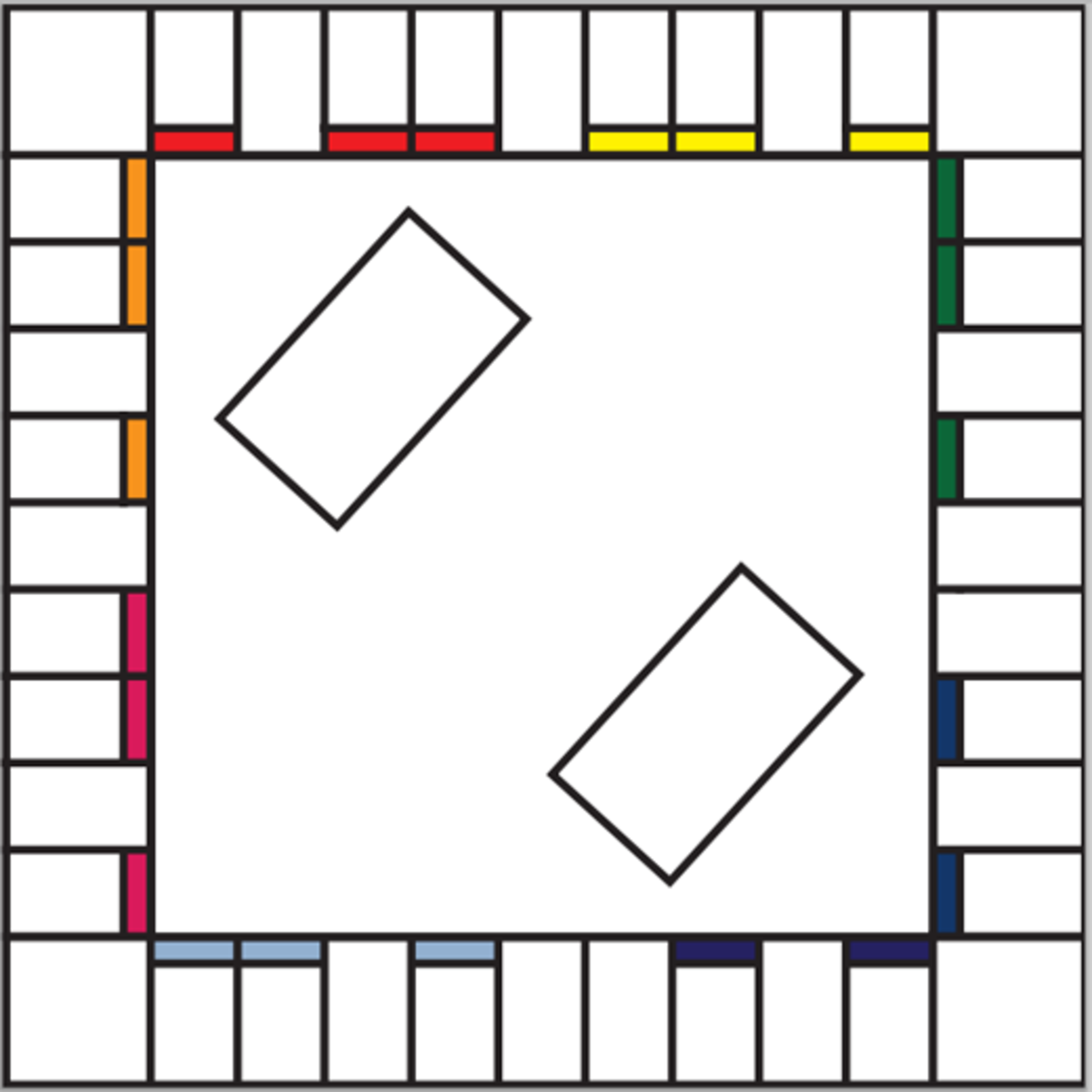Board Game Review: Pandemic
Hungry for an original game? Allow me to break open the petri dishes for you. Gather a group of friends together for a cooperative campaign to stop the world from dying of infections and various diseases represented by nefarious colored cubes. No game is truly the same with heavy amounts of randomization for an experience that truly tasks you with strong cooperation. No one man can save the world in Pandemic.
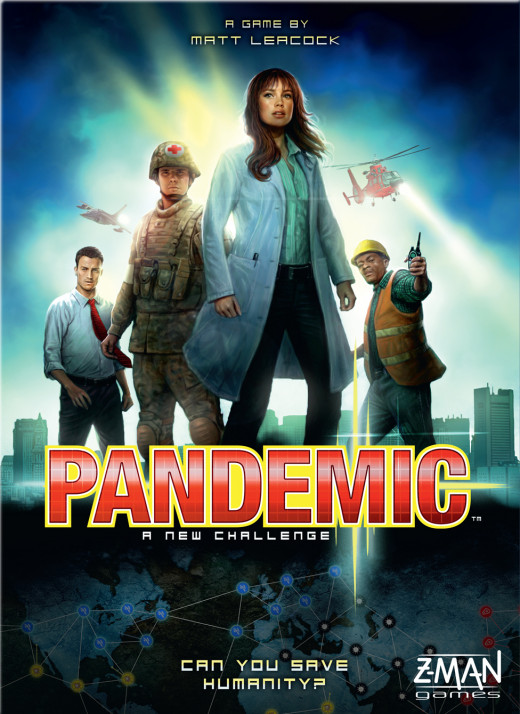
What is It?
Pandemic is a cooperative board game where you and your fellow players use your different strengths and resources in order to slow and defeat the various diseases that appear on the board. It's recommended that you play 2-4 people, as with more numbers the game becomes more difficult to coordinate among so many players where infections continue to run rampant. It takes about 5 minutes to set up (once you get the hang of it) and some games can go on for about an hour (although there is a system in place that will stop the game from dragging on endlessly).
There are two major decks in this game, the Player Deck (which contains resources for the player and the infamous Epidemic cards) and the Infection Deck (which determines what series are hit with more infections). There are four diseases materialized as cubes that collect on a city spot and when four of the same color land on one city spot, there is an outbreak and that fourth cube gets turned into many that spread to surrounding cities. Each character randomly gets access to one of the 5 roles that each have their own unique ability or abilities that must be utilized in order to win, each with their own player piece to match their role on the board.
Each player, at the start of their turn, has 4 actions which will widely be used to move from one city to an adjacent one or to treat a disease, each requiring one action (so you could move 4 spots, treat 4 disease cubes, or any combination). There are also other functions such as Direct and Charter Flights, building Research Stations, trading cards with players in the same city as you, or Curing a Disease. To cure a Disease, you must have 5 of the same color Player card (which you draw at the end of your turn) and turn them in at a Research Station. In order to beat the game, you need to cure all 4 Diseases.
Once you've performed your 4 actions, you draw two Player Cards which may be a City card (which may help you build up colors to Cure a Disease, help you travel, or build a Research Station), an Event card (free cards that may give you a one-time edge in-game), or an Epidemic card (more on this later, but it's bad). After this, you will draw however many Infection cards the Rate dictates (you start with 2 but the Epidemic changes that) and hit each of those cities with their corresponding color cube to represent the active diseases.
While there is 1 way to win the game, there are 3 ways to lose. If all of a specific color cube is used up to show city infections, then that disease has run rampant and the game is over. If eight outbreaks occur during a game, the casualties are too great and the game is over. If you run out of player cards, you've run out of resources and the game is over. So, not only do the first two lose clauses require constant treatment, but the last clause requires you to finish the game in a timely manner.
Finally, there are the very terrifying Epidemic cards hiding in the Player Deck. When drawn, these increase the rate of the Infection (meaning at the end of every turn, a player might have to draw more Infection cards), draw the bottom card of the Infection deck and place 3 cubes on it before discarding it (which immediately puts it in the danger range), and shuffles all the discarded Infection cards back on top (meaning all the cities most recently hit are about to be hit again, including that one city that just appeared in the danger range). These cards quickly change the tide of the game and can wreck any careful strategies.
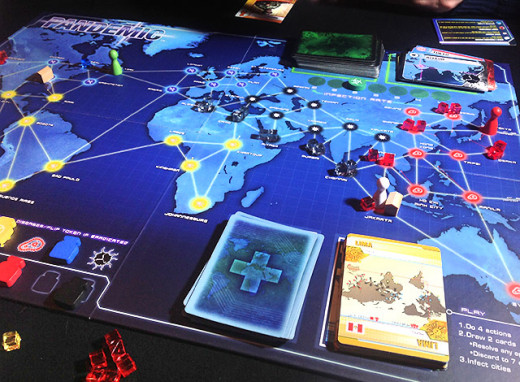
Why is this Good?
It's EMOTIONAL man! A basic game has you and your buddies kicking butt and taking names. You're knocking out the disease cubes faster than the Infection deck can put them out, and your collecting resources in order to Cure the Diseases. You might even Cure one! It's all good!
Then you draw your first Epidemic card. It shakes things up a little bit, forcing a player to deal with the new city that's in danger while everyone else starts mopping up older cities that were neglected that are also approaching dangerous levels. It's not bad, you will probably get a disease cured at this point and maybe even Eradicated (when you Cure a Disease and remove all its pieces off the board, any cards of that color don't perform anymore).
Then you draw your next Epidemic. If you've been careless, you've definitely allowed an Outbreak to happen, causing a bigger mess and putting that now suddenly present ticker to move down one. Heck, it might be so bad that you've chained two Outbreaks into card drawn, severely destroying the area around it and practically begging to be treated. You were ready to trade cards so you can Cure another Disease but that has to be put on hold. By the time you clean up that mess, other cities have been hit a little more just in time for...you guessed it, another Epidemic. Not only that, but this Epidemic now forces everyone to draw 3 Infection cards instead of 2, causing the situation to dissolve rapidly as one player has to wait on his three teammates to perform an action, which means 9 cities are about to get hit.
It's all on an impartial system, based entirely on how the cards are shuffled and the Infection cards get shuffled quite a bit. The beginning of the game the Black cubes are everywhere but when you're finished there, Yellow has become an issue and the Infection cards become recycled, starting the process over again. It's literally a race against time. You will perform great manners of strategy only for Epidemics to spoil things for you. Unless you see the game you've played to be lacking in ability, you will not see the end come until a minute before. Or, better yet, you've done a great job of treating everything constantly without Outbreaks but you run out of Player cards, ending the game just the same.
But it's so GOOD! The comraderie that's formed, the joint decisions, working together against an unthinking yet ever changing force is addictive, and as soon as you lose your first game you'll want to play again. I believe I played the game 3 times (the right way) before I finally won and my win-to-lose ratio remains at about that level.
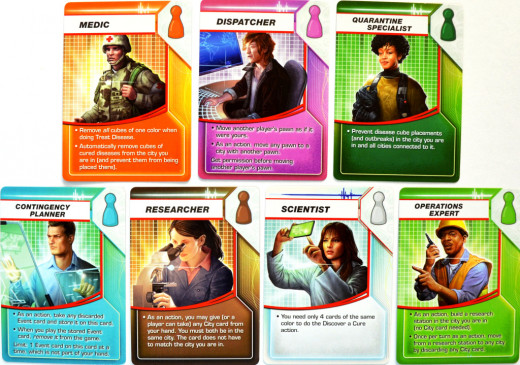
Expansions
I'll gloss over this but Pandemic has about 3 expansions that add in things like new roles, new Event cards, new ways to augment the old game like giving the strongest Disease a Mutation or making a single human player a Bioterrorist who works against the group. At this point, I only own On the Brink but the quality of everything in it is 100% in my opinion. It even adds in two blank Role and Event cards to customize to your liking.
Closing Thoughts
Man, this game is addictive in a bad way. You will lose, a lot, and you'll probably want to keep coming back to it. It's also very accessible to everyone, meaning you don't need to be familiar with a certain game to understand this one. Invite your preteen and senior relatives to play. If you like it, you can purchase an expansion (in order) to improve the depth.
Have I peaked your interest in this game?
Tl;dr
- an original cooperative game for 2-4+ people, costs about $30 for the base game
- Game relies heavily on random shuffling, making games very different from one another
- Can actually be very hard to downright impossible to win
- Surprisingly emotional as the game's difficulty tide changes so often
- Pieces are very likely to be swallowed by small children or animals
- A handful of expansions that change the way it's played
- You and your friends can name the Diseases whatever you want. It's more fun than it sounds, I promise.
- Will slightly help you in your worldwide city geography exam
More Reviews
I'm working on reviewing a few more non-traditional (ie. not Battleship, Monopoly, and the like) board games but I've only got another micro game called One Night Ultimate Werewolf which is like your card games Mafia or Werewolf where everyone gets a special ability. By the way, it's a fantastic game for parties.
Or maybe you enjoy deck building? Have about a fantastic game utilizing Marvel Comics properties in Legendary: Marvel Deck Building Game.
I've already written a considerable bit of material for the card game Munchkin, a massive selection of games that parodies various genres in a card based D&D style play full of backstabbing and manipulating your friends just to get ahead. It also has the options of tons of Custom Cards, so if you're interested in that, I've got more than a handful of cards that can spice up your games.

